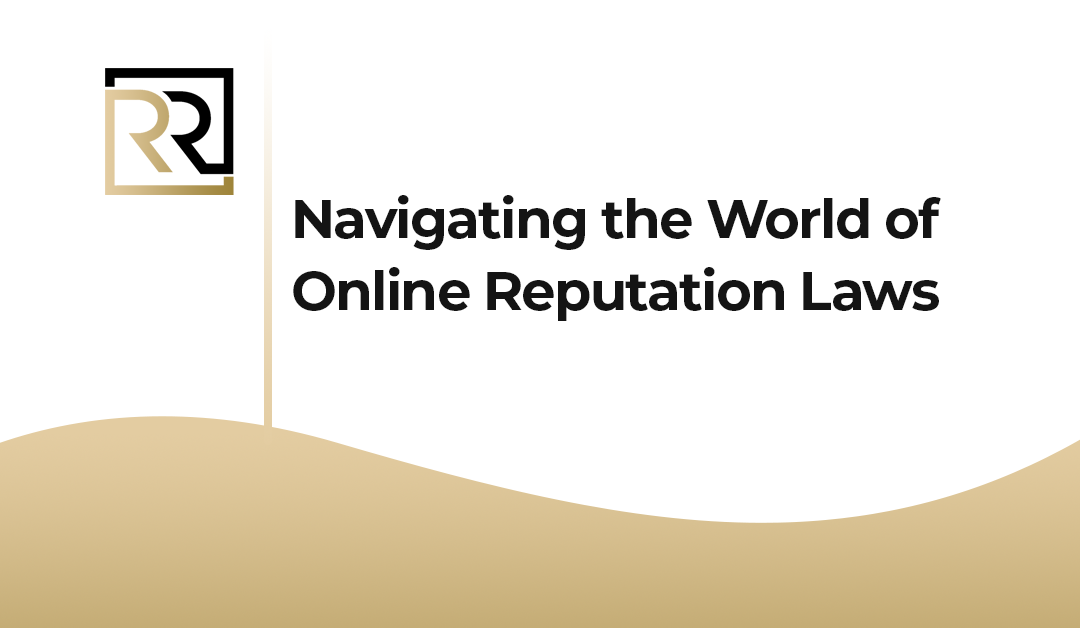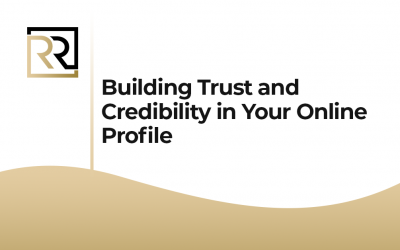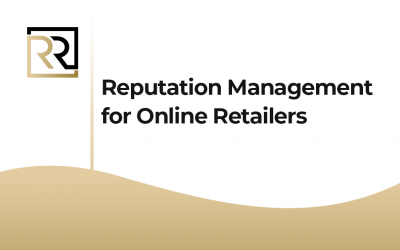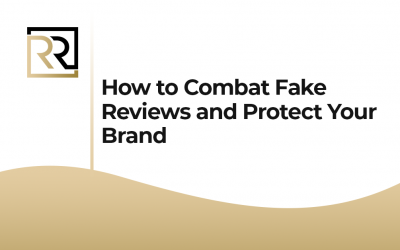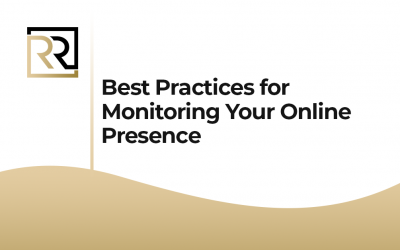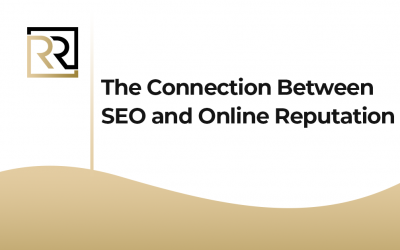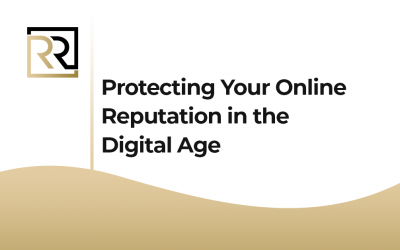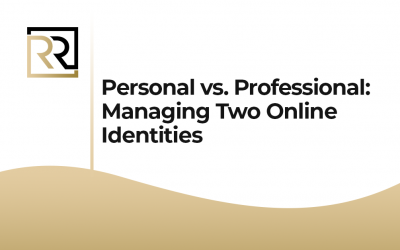A Comprehensive Guide to Online Reputation Laws
In today’s interconnected world, where digital interactions shape perceptions and influence decisions, online reputation has become a valuable asset. However, the digital landscape is not without its challenges. Consequently, individuals and businesses alike may find themselves navigating the complex waters of online reputation laws. Therefore, this article serves as a comprehensive guide to understanding the legal aspects that govern online reputation. It also provides insights into safeguarding and managing your digital standing within the bounds of the law.
The Evolution of Online Reputation Laws
- Legal Recognition of Digital Reputations: Firstly, as the internet has become an integral part of everyday life, lawmakers worldwide have recognized the significance of online reputations. Moreover, legal frameworks have evolved to address the challenges posed by these problems. Defamation, cyberbullying, and the potential long-lasting impact of digital content on individuals and businesses, to name but a few.
- Global Perspectives on Digital Reputation: Also, online reputation laws vary across jurisdictions, reflecting cultural, legal, and societal differences. Therefore, understanding the legal landscape in your region is essential for effectively navigating the challenges associated with managing your online reputation.
Defamation and Online Reputation
- Defining Defamation: Defamation laws are central to protecting individuals and businesses from false statements, that harm their reputation. Thus, online defamation can take various forms, including false reviews, malicious comments, or misleading information. Also, lawsuits may arise when false statements lead to reputational damage.
- Proving Defamation: To establish a defamation case, the plaintiff typically needs to prove that the statement was false. Also, it needs to have been published to a third party, and caused reputational harm. Additionally, in the digital age, identifying the origin of defamatory content and its impact can be challenging, requiring legal expertise and digital forensic tools.
The Role of Section 230
- Understanding Section 230: In the United States, Section 230 of the Communications Decency Act plays a significant role in shaping online reputation laws. Furthermore, this section provides immunity to online platforms, from liability for user-generated content. While it encourages free speech, it also poses challenges in holding platforms accountable for facilitating harmful content.
- Ongoing Debates and Reforms: The interpretation and application of Section 230 have sparked ongoing debates about online platforms’ responsibility for the content they host. Moreover, policymakers are considering reforms to strike a balance between fostering free expression and holding platforms accountable for the content they host.
Cyberbullying and Harassment
- Legal Responses to Cyberbullying: Cyberbullying, often fueled by anonymous online interactions, is a growing concern. Many jurisdictions have implemented laws specifically targeting online harassment. Also, these laws aim to protect individuals from malicious digital attacks that can cause severe emotional distress, and reputational harm.
- Legal Protections for Victims: Furthermore, legal protections against cyberbullying may include restraining orders, criminal charges, or civil actions. Additionally, victims can seek legal remedies to stop the harassment. Victims must identify the perpetrators, and claim damages for any harm caused to their reputation and well-being.
Right to Be Forgotten
- European Union’s Right to Be Forgotten: Further, in the European Union, individuals have the right to request the removal of certain personal information from search engine results. This is under the “Right to Be Forgotten” principle. Moreover, this law allows individuals to have outdated or irrelevant information about them delisted, providing a degree of control over their online narrative.
- Challenges and Limitations: While the Right to Be Forgotten offers a valuable tool for individuals seeking to manage their online reputation, it also raises concerns. This is mainly about censorship and conflicts, with freedom of expression. Striking a balance between privacy rights and the public’s right to information, remains a challenge.
Online Reputation Management Services
- Navigating the Digital Landscape with Professionals: Online reputation management (ORM) services have emerged to help individuals and businesses proactively manage their digital reputations. Moreover, these professionals employ various strategies. These include content creation, search engine optimization, and crisis management, to shape a positive online image.
- Legal and Ethical Considerations: When engaging ORM services, it’s crucial to ensure that their practices align with legal, and ethical, standards. Moreover, unethical tactics, such as fake reviews or deceptive SEO practices, can lead to legal consequences, and further damage to your reputation.
Social Media and Online Reputation
- Social Media Platforms as Double-Edged Swords: Further, social media platforms play a central role in shaping online reputations. Chiefly, they offer opportunities for positive engagement and brand building. Also, they expose individuals and businesses to the risks of negative comments, viral misinformation, and public backlash.
- Mitigating Risks Through Platform Policies: Understanding and adhering to social media platform policies, is essential for mitigating risks. Platforms may have specific rules regarding user conduct, content removal, and reporting mechanisms. Therefore, familiarizing yourself with these policies can help protect your online reputation.
Proactive Measures for Online Reputation Management
- Monitoring and Responding Promptly: Thus, regularly monitoring includes online mentions and feedback. Also, address any negative content promptly and professionally. Moreover, engaging in a transparent and constructive manner can mitigate reputational damage, and demonstrate a commitment to resolving issues.
- Building a Positive Digital Presence: Further, actively contribute to a positive online narrative, by creating and sharing valuable content. Besides, establish yourself, or your business, as a reputable and reliable source of information within your industry. Positive content can overshadow negative narratives.
Seeking Legal Counsel for Online Reputation Matters
- Consulting with Legal Professionals: When facing severe reputational challenges, seeking legal counsel is advisable. Thus, Attorneys specializing in defamation, privacy laws, and internet-related matters, can provide guidance on the best legal course of action, to protect your online reputation.
- Preserving Evidence for Legal Actions: Moreover, if contemplating legal action, preserve evidence of the harmful content. This may include taking screenshots, recording URLs, and documenting the impact on your reputation. Besides, such evidence is crucial for building a strong case.
Conclusion: Online Reputation Laws
Finally, in the ever-evolving digital landscape, understanding and navigating online reputation laws are essential for individuals and businesses alike. Therefore, from defamation challenges, to cyberbullying and the nuances of Section 230, the legal framework surrounding online reputation is complex. Thus, by staying informed, adopting proactive online reputation management strategies, and seeking legal counsel when necessary, individuals and businesses can navigate the digital seas with confidence. Additionally, this safeguards their online reputation and ensures a positive digital standing within the boundaries of the law. This also takes care of corporate reputation management.
Services
Our Services
Search Engine Content Removal
Social Media Content Removal
Positive Content Creation
Online Reviews Optimization
Search Results Optimization
Learn
Our Blog
Building Trust and Credibility in Your Online Profile
Building Trust and Credibility in Your Online Profile Further, in the digital age, establishing trust and credibility in your online profile is paramount for personal and professional...
Reputation Management for Online Retailers
Reputation Management for Online Retailers Further, in the fast-paced world of e-commerce, building and maintaining a positive online reputation is paramount to success. Thus, with countless...
How to Combat Fake Reviews and Protect Your Brand
How to Combat Fake Reviews and Protect Your Brand Wondering how to Combat Fake Reviews? In general, in the digital age, online reviews wield tremendous influence over consumer purchasing...
Best Practices for Monitoring Your Online Presence
Monitoring Online Presence In today's hyperconnected world, monitoring online presence plays a pivotal role in shaping your personal and professional reputation. Starting from social media...
The Connection Between SEO and Online Reputation
SEO and Online Reputation Further, in the digital realm, where visibility and credibility reign supreme, the relationship between search engine optimization (SEO) and online reputation...
Protecting Your Online Reputation in the Digital Age
Protecting Your Online Reputation In an era dominated by digital interactions and virtual connections, protecting your online reputation holds immense significance. Whether you're an...
The Power of Positive Online Branding for Entrepreneurs
The Power of Positive Online Branding for Entrepreneurs The Power of Positive Online Branding, in the dynamic world of entrepreneurship, establishing a strong online brand presence is not...
How to Effectively Use Google Alerts for ORM
How to Effectively Use Google Alerts for ORM Use Google Alerts for ORM, in today's digital landscape, maintaining a positive online reputation is essential for individuals and businesses...
Personal vs. Professional: Managing Two Online Identities
Online Identities - Navigating Personal and Professional Spheres in the Digital Realm In the digital age, where our lives seamlessly intertwine with online platforms, the question of managing...


